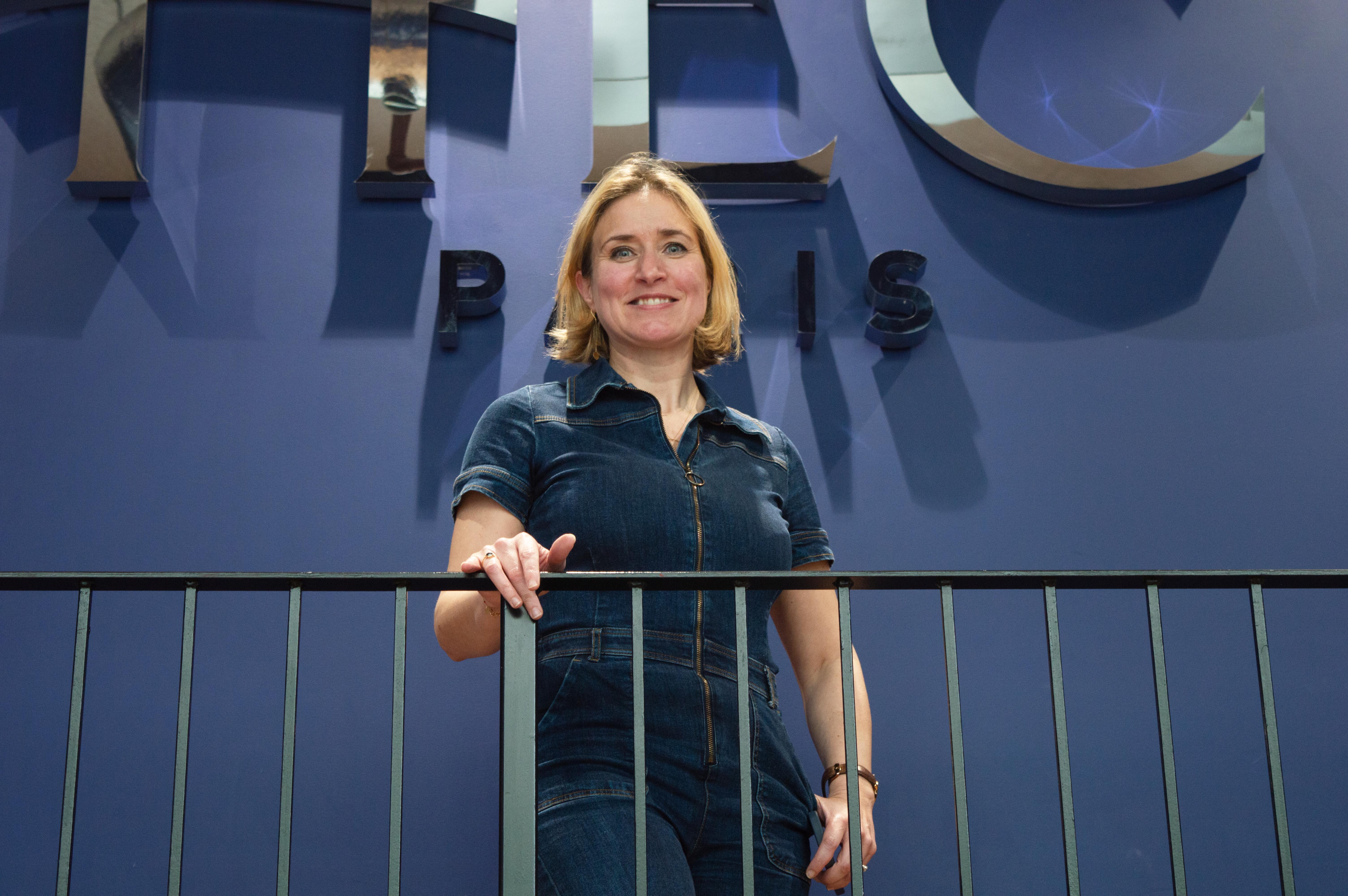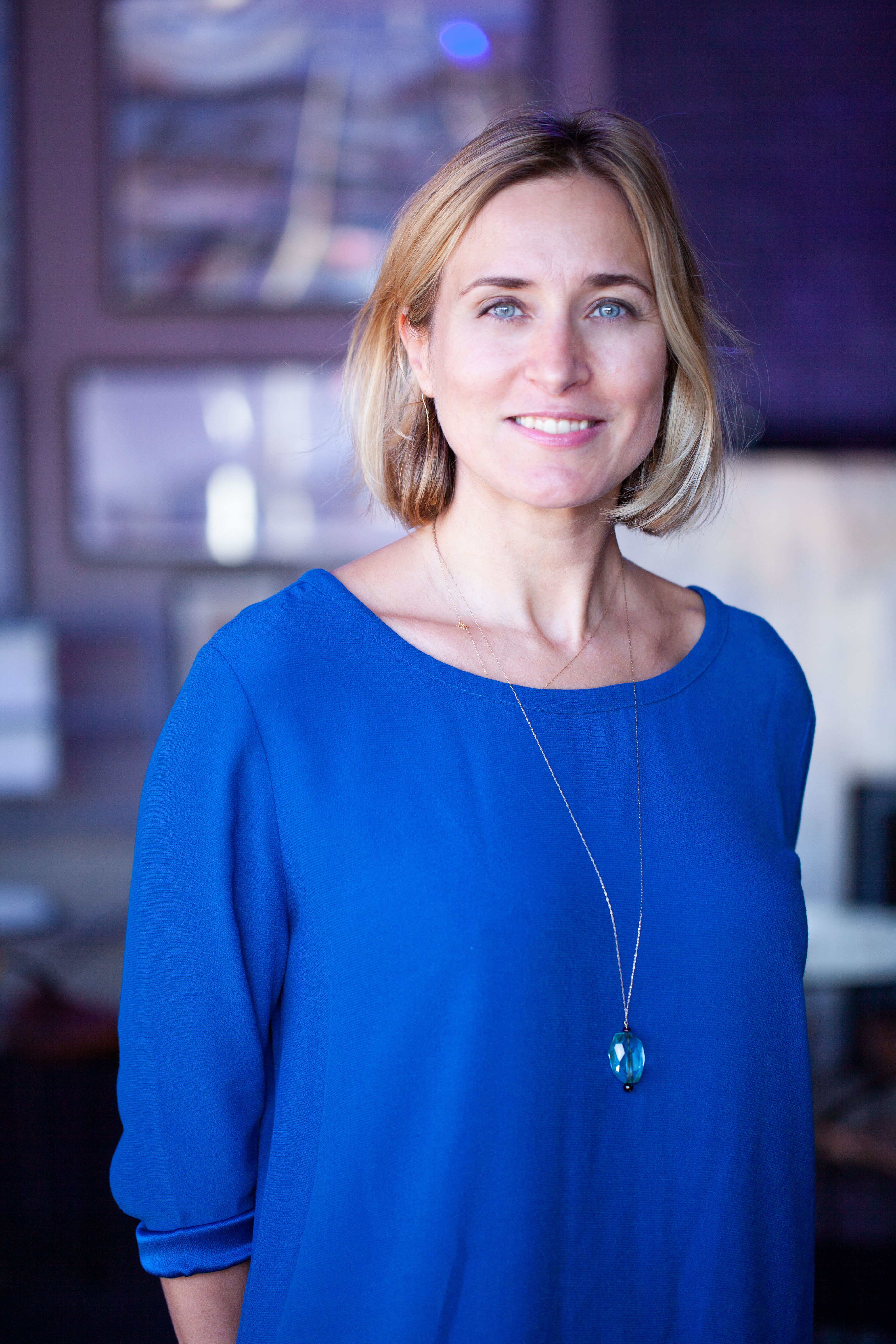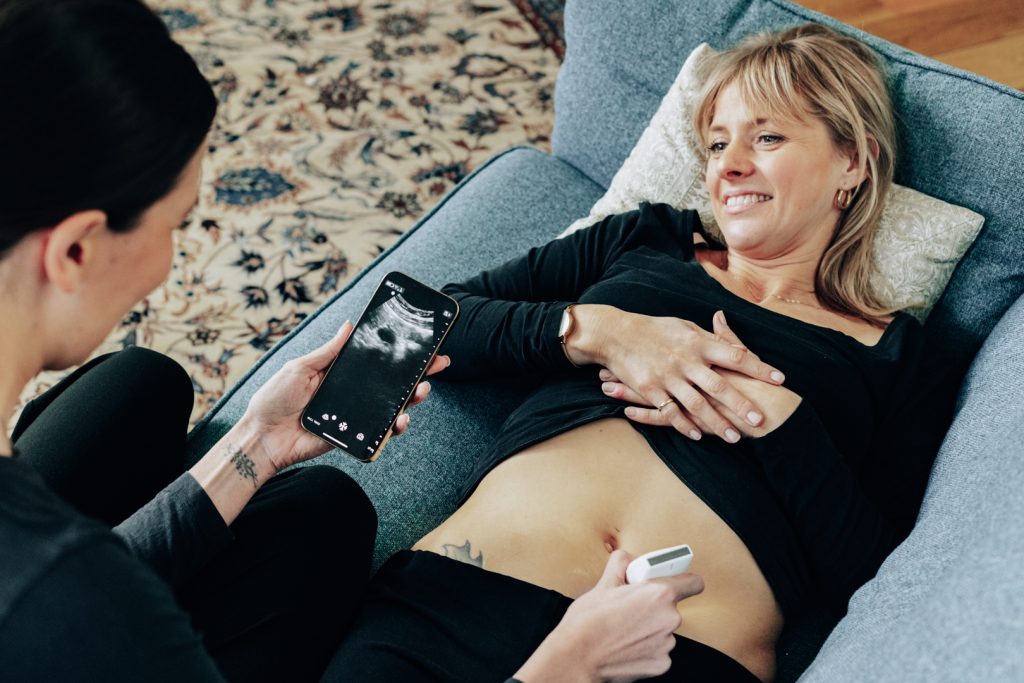Caroline Noublanche (H.99): A Virtual Clinic Dedicated to Fertility

From Paris, the entrepreneur has created a new healthcare player to address fertility issues in Great Britain. A major global challenge.
“I moved in the Eurostar,” she says, jokingly. It’s on March 8th, the day dedicated to women, that HEC Stories spoke with a French entrepreneur who lives between Paris and London. Caroline Noublanche is the creator of Apricity, a virtual fertility clinic launched in the United Kingdom to contribute to solving a global issue. Today, one in six people suffers from fertility problems, according to the WHO. A staggering statistic.
With a mix of Marseille and Northern French backgrounds, coming from a family with both Gaullist and communist leanings, Caroline Noublanche grew up in the Paris suburbs amid societal debates. During the Covid crisis, the 47-year-old, who is married to a social entrepreneur, even launched an associative project called “Ma voix porte” (My Voice Carries) to question citizens about the “world to come.” She also started her first company very early in her career. “With self employed parents, entrepreneurship didn’t scare me.” When she started working, first at a mobile operator, she quickly noticed that “in new technologies, there were many men in leadership positions. I wondered how to reach the top.”
In 2004, she specialized in mobile application development, starting her company Prylos. Acquired by the Swedish telephony company Doro seven years later, she worked on developing technological tools for seniors, going back and forth between France and Sweden. “I don’t like technology for the sake of technology. I like it when it brings something transformative,” she says. “But after a few years, it can be depressing to work on end-of-life issues.”

À l’extrême opposé, Caroline Noublanche décide en 2017 de s’intéresser à la question de la fertilité et rejoint l’incubateur Kamet, financé par Axa. « J’ai eu mes enfants naturellement, mais je voyais bien la souffrance que cela pouvait causer aux gens qui n’arrivaient pas à en avoir. » Elle rencontre des patients « qui me pleuraient dans les bras en m’expliquant ce qui leur arrivait. » Puis le Dr Mohamed Taranissi, un médecin pionnier de la FIV (fécondation in vitro) avec des taux de succès remarquables lui souffle l’idée d’utiliser un appareil connecté et un algorithme . « Toutes les datas se trouvaient dans des classeurs papiers conservés à la cave de sa clinique où il avait noté sa belle écriture au crayon à papier, se souvient-elle. En santé, les bases de données demandent à être… numérisées et nettoyées. »
Alleviating stress during treatment
In 2018, she launched Apricity on the British market. The headquarters and the technology section are based in Paris, while the operational subsidiary, “the clinic that sells and operates treatments,” is in England. A country where the path to fertility treatment mainly goes through the private sector. “The National Health Service has gradually disengaged from reproductive medicine: most patients have to finance their treatments themselves, and waiting times are long.”

©Apricity
Apricity offers treatment supervision from start to finish while relying on a “physical network of care partners”: clinics, analysis laboratories, ultrasound centers, etc. Most of the treatment process takes place at home, digitally, but patients have access to a variety of options: home nurse visits, video consultations, video support during injections, availability of a fertility advisor from 7 am to 9 pm, or follow-up treatment via the mobile app. “We send you to an ultrasound center near your workplace or a nurse can come and do the ultrasound at your plac,” describes the entrepreneur, who has also developed patient tracking software to improve the efficiency and success rate of assisted reproductive technology.
Thus, the algorithm for optimizing ovarian stimulation exploits existing databases in partnership with major hospitals, clinics, or institutions such as the HFEA (the Human Fertilisation and Embryology Authority). The analysis of this data is intended to maximize the number and quality of collected eggs.
Apricity also uses machine learning to model embryos in 3D (whose selection still relies on a visual interpretation performed under a microscope). “There are algorithms to analyze the best eggs, the best sperm… We collaborate on these topics with startups that are at the forefront in the field.”

The clinic’s patients are not necessarily those that one might imagine. “We talk a lot about women’s age as a major factor in infertility but today the main cause of infertility is male. Men are indeed faced with sperm quality issues.
Supported by … Corporations
Many young women also wish to freeze their eggs. “They seek to preserve their fertility because they haven’t met their partner yet or because it’s not the right time in their career.” Quite surprisingly, large corporations now represent nearly 30% of the clinic’s turnover. “We have convinced companies like Google and Microsoft to support their employees and finance all or part of their treatments,” explains Caroline Noublanche.

©Apricity
In France, the announcement of a plan against infertility by Emmanuel Macron in early 2024 has propelled the issue to the center of debates. The use of the expression “demographic rearmament” in particular aroused strong emotions. “We talk about one in six people, but in reality, it’s one in four couples who encounter problems today. We are facing a major global public health issue. We are still waiting to fully understand what the contours of this plan will be to associate ourselves with it, but we would very much like to launch in France.” So far, 170 babies were born since the creation of Apricity for 1500 patients treated in the UK. And soon, will there be French babies too?
Published by Estel Plagué

